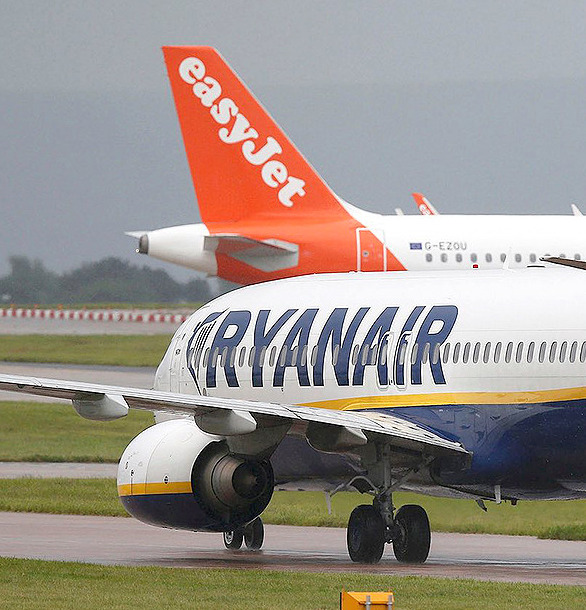UK-based airlines told to move to Europe after Brexit or lose major routes
EU chiefs have warned airlines including easyJet, Ryanair and British Airways that they will need to relocate their headquarters and sell off shares to European nationals if they want to continue flying routes within continental Europe after Brexit. Executives at major carriers have been reminded during recent private meetings with officials that to continue to operate on routes across the continent – for instance, from Milan to Paris – they must have a significant base on EU territory and that a majority of their capital shares must be EU-owned. The development, coming days before the triggering of article 50, potentially makes it more likely that the carriers will act to restructure, with economic consequences for the UK, including a loss of jobs.
It might be that carriers choose to have domestic flights [on the continent] operated by their new European operating licence, which would probably mean a reduction in staff in the UK
Thomas van der Wijngaart, aviation expert at the legal firm Clyde & Co
The tough line from the EU may encourage the UK to reciprocate with its own nationality rules, which would leave EU-owned airlines facing equally difficult choices, potentially dampening their investment in the UK in the short term, although some may seek in time to establish their own British subsidiaries. The ability of companies such as easyJet to operate on routes across the EU has been a major part of their business models, and there may be a renewed willingness among airlines to invest outside the UK to maintain market share. Some airlines have already started to seek alternative headquarters, and to examine how they might ensure that their shareholding is majority-EU owned, possibly through the forced disinvesting of British shareholders. But others have appeared, until now, to hold out hope that the European commission would be flexible on the rules in the current aviation agreement. EU officials in the meetings were clear, however, about the rigidity of the rules, amid concerns at a senior EU level that too many in the aviation industry are in denial about the consequences of the UK’s decision to leave the bloc.

Business